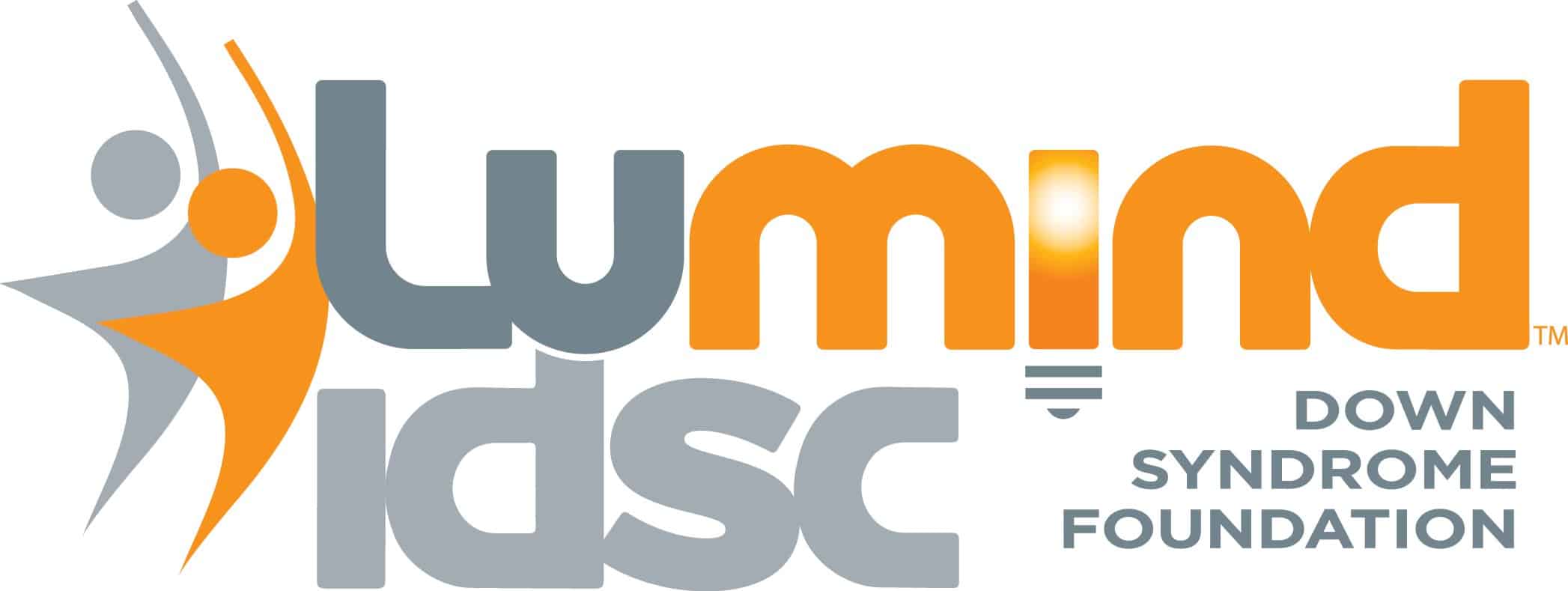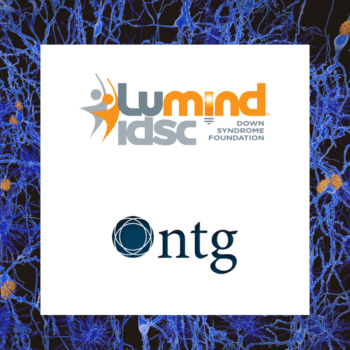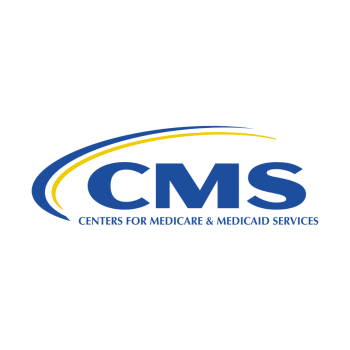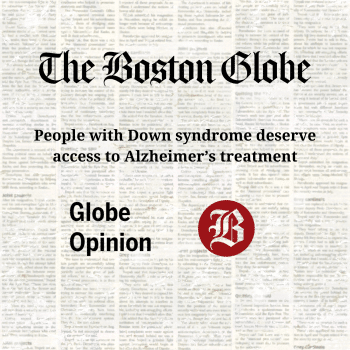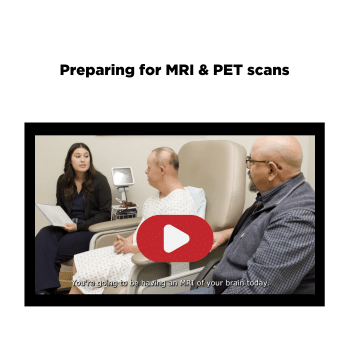LuMind IDSC and the National Task Group on Intellectual Disabilities and Dementia Practices (NTG) are collaborating again to co-lead and launch a key project, The Early Down syndrome-associated Alzheimer’s Disease (DS-AD) Staging Project. This new project is the result of last summer’s Congressional Committee meeting with the federal Centers for Medicare and Medicaid Services (CMS) to discuss their decision around rules for reimbursing recently FDA approved Alzheimer’s drugs. This meeting, aside from the groundbreaking confirmation from CMS that people with Down syndrome would not be excluded from Medicare insurance coverage for this class of drugs, identified the need to create definitions and diagnosis of the stages of DS-AD. In addition, the FDA, pharmaceutical companies, practicing clinicians and care providers are equally interested in these stages of DS-AD.
Why? Because in the neurotypical population, the stages of Alzheimer’s are well defined and guide treatment as the disease progresses. Because there are well established expected levels of cognitive function in the neurotypical population, individuals presenting with symptoms of cognitive impairment or dementia can be readily placed on a continuum of Alzheimer’s stages. The ability to place an individual on this continuum of Alzheimer’s stages also informs how they are cared for by clinicians and which therapeutics they are eligible for. Unfortunately, this staging process is much more complicated for people with Down syndrome because of highly variable levels of baseline cognitive function due to intellectual disability. Despite being recognized as a genetically determined form of Alzheimer’s, there is not established consensus about how to define the stages and monitor the clinical progression of DS-AD, which is a significant barrier to clinical trial enrollment, effective treatment, and equitable access to the latest approved therapeutics for the DS community.
LuMind IDSC and NTG are leading the DS-AD Staging Project to remove this barrier. A 14-member panel of international experts has been convened to develop consensus on the staging of DS-AD, focusing on defining the biological stages of the disease, understanding impairments across different domains at each stage, and establishing diagnostic criteria. This project will serve as a guidepost for the future treatment of DS-AD. In addition to the experts panel, a survey will be sent out to a broad set of experts and constituents as input to this consensus project.
Other important additional progress towards our important goal of adults with Down syndrome having equal access to the emerging Alzheimer’s treatments with (or near) FDA approval: Acknowledgement of DS as stage 0 of Alzheimer’s disease in the latest AA Revised Criteria for Diagnosis and Staging of Alzheimer’s Disease. This acknowledgement represents an important designation that DS-AD is a genetic condition that could benefit from treatment.
